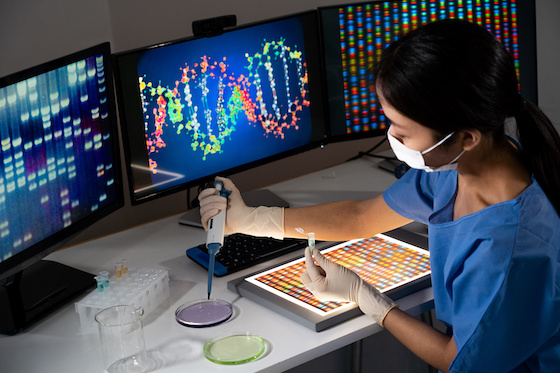Elevidys' future said to be on ice after Sarepta reports patient death from separate gene therapy
Top Story
By: Pavan Kamat
Ref: Bloomberg, Reuters, Bloomberg
Published: 07/18/2025

Hours after Sarepta Therapeutics disclosed that a third patient had died after receiving one of its gene therapies, the FDA is reportedly moving to shut down shipments of the biotech's marketed gene therapy, Elevidys (delandistrogene moxeparvovec), for Duchenne muscular dystrophy (DMD).
While the latest death was not associated with Elevidys — instead occurring in an early-stage trial of an experimental gene therapy for limb-girdle muscular dystrophy (LGMD) type 2D alpha-sarcoglycanopathy — the two products use the same recombinant AAV vector AAVrh74.
The potential shipping pause, first reported by Reuters on Friday afternoon, is the latest turn in Elevidys' ongoing challenges following two recent cases of fatal acute liver failure (ALF) among non-ambulatory teenage boys with DMD.
In addition to recently stopping an EU trial of Elevidys and pausing shipments for non-ambulatory patients, Sarepta this week said it also agreed to the FDA's request to add a boxed warning to the gene therapy's label, highlighting the risks of acute liver injury (ALI) and ALF. It is also working on a protocol regarding the use of sirolimus as a prophylactic immunosuppression in the non-ambulant population.
Another liver disease death
On Friday, Sarepta confirmed that a 51-year-old non-ambulatory male who received experimental LGMD gene therapy SRP-9004 (patidistrogene bexoparvovec) experienced fatal ALF around 11 weeks after dosing.
While the drugmaker said it had informed regulators and investigators "in an appropriate and timely manner," the death happened last month and was only acknowledged by the company after reports emerged from several news sources.
The news sent company shares down over 36% on Friday.
Disclosure timing questioned
The latest fatality disclosure comes just two days after Sarepta announced a strategic restructuring prompted by the two earlier deaths associated with Elevidys. The company will cut nearly 500 jobs and prioritise its siRNA platform assets.
As part of the overhaul, Sarepta indicated that it would also pause all of its gene therapy programmes for LGMD, with the exception of SRP-9003 for LGMD-2E, where a biologics license application will be filed in the second half. Following "a risk adjusted net present value, considering all the costs and the ultimate opportunity…we couldn't justify continuing" with the LGMD programme, CEO Doug Ingram said.
However, Ingram faced several pointed questions Friday about why the company stayed mum on this latest fatality when it announced the restructuring on Wednesday, — even after an analyst had specifically asked about the safety of the LGMD programmes during the earlier call.
"We did not discuss this matter in our call on Wednesday because it was neither material nor central to the topics at hand," Ingram told analysts Friday morning. "This event occurred in a trial that was otherwise completed with all dosing, and for a therapy for which we determined — independent of this — not to proceed."
He said Sarepta would typically share such findings, once the full study is complete, at an appropriate medical meeting, adding, "We intend to do this when the full data set is available."
Ingram also pointed out that the decision to move ahead only with SRP-9003 and pause the remainder of the other LGMD programmes "did not relate to a safety event in any of the LGMD trials, or because of general signals of ALF and ALI and AAV-mediated full infusions of later-stage and more debilitated patients."
FDA 'taking a hard look'
Despite the CEO's claim that the LGMD gene therapy–related death "doesn't change in any way either the safety signal for Elevidys or the approach that we're taking with Elevidys," given that it's a "separate therapy, it's a separate disease state, it's a separate construct and even a different manufacturing process," the DMD product still seems to be in regulators' crosshairs.
FDA Commissioner Marty Makary told Bloomberg News Friday that he is "taking a hard look" at whether Sarepta's gene therapy should remain on the market.
Meanwhile, when asked on Friday's call if Sarepta has been able to identify other risk factors in the three deaths so far, Chief Scientific Officer Louise Rodino-Klapac said the company is continuing to analyse the cases.
"There's obviously differences in pathology between DMD and LGDM, but in both cases, we have patients that are more advanced in their disease and are…unable to recover from the liver injury as a younger patient would be able to," she said, but there's "nothing more specific in terms of…a single risk factors that we can point to at this point."